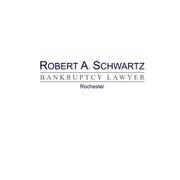Secured & Unsecured Debt: Understanding the Differences

Any loan product—from credit cards to mortgages—can be categorized as either secured or unsecured. Understanding whether or not a debt is secured can help borrowers prioritize payments, plan their long-term finances, or decide which bankruptcy program to use if they’re unable to meet their payment obligations. Below is an overview of the key differences between these two types of debts.
Understanding Secured & Unsecured Debt
What Are Unsecured Debts?
Unsecured debt is any loan given without collateral, such as credit cards, lines of credit, and personal loans. If the borrower fails to make their payments, the lender of an unsecured debt does not have the right to seize the assets purchased with those funds under most circumstances. The vast majority of consumer credit products fall under this general umbrella. Other examples of unsecured debts include medical bills, utility bills, past due rent, and student loans. Unless a tax lien has been filed, personal income taxes are considered to be unsecured debt. Depending on the circumstances, income taxes are either priority debt or non priority debt subject to discharge in Bankruptcy.
What Type of Bankruptcy Applies to Unsecured Debt?
Chapter 7 bankruptcy is designed to alleviate the burden of borrowers struggling with excessive unsecured debts. Under this program, petitioners may completely eliminate almost any credit card debt or personal loans, along with a wide range of other liabilities. However, the trustee may seize some of the Debtor’s assets to compensate creditors if the assets exceed the value which the Debtor’s are allowed to claim as their exempt property under the law.
What Are Secured Debts?
 A secured debt is any loan secured by the value of an asset, such as a vehicle or piece of real estate. Mortgages and auto loans are the most common examples of secured debt, although some lenders may ask for collateral on personal loans, as well. Unpaid property taxes are also considered to be secured debts. If the borrower defaults on the loan or fails to pay the property taxes, the lender may seize the asset and/or commence foreclosure in order to sell it and apply the proceeds against the loan balance.
A secured debt is any loan secured by the value of an asset, such as a vehicle or piece of real estate. Mortgages and auto loans are the most common examples of secured debt, although some lenders may ask for collateral on personal loans, as well. Unpaid property taxes are also considered to be secured debts. If the borrower defaults on the loan or fails to pay the property taxes, the lender may seize the asset and/or commence foreclosure in order to sell it and apply the proceeds against the loan balance.
What Type of Bankruptcy Applies to Secured Debt?
Borrowers who have fallen behind on their payments but do not wish to lose the collateral may file for Chapter 13, also known as debt restructuring. Chapter 13 can also be used to pay property taxes and income taxes. Much like a Chapter 7, Chapter 13 bankruptcy also discharges most unsecured debts, while allowing petitioners to make up arrears on secured accounts through a court-managed payment plan. While the payments are being made, the creditor will be unable to repossess or foreclose on the property.
For over 30 years, Robert A. Schwartz has provided detailed advice and effective legal counsel to Rochester, NY, borrowers who have fallen behind on their debts. If you’re unable to pay your mortgage, credit card, or other obligations, he will help you wipe the slate clean and reclaim your financial life. Visit his website to browse his practice areas or call (585) 351-2929 to arrange a consultation with an experienced bankruptcy attorney.
About the Business
Have a question? Ask the experts!
Send your question

